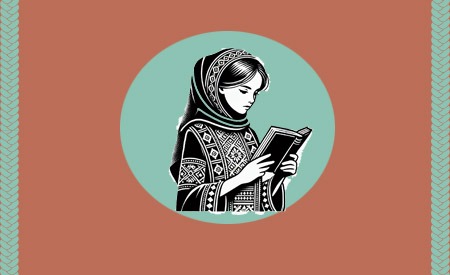Written by :Amal Al-Siblani
I’m a writer specializing in peace studies, a storyteller, and a podcaster. Currently, I’m pursuing a master’s degree In political science with a focus on international relations. Through my writings, I aim to shed light on significant issues that promote understanding and coexistence.
My role In this project, I was part of the team responsible for preparing the podcast episode. I contributed to content writing and collected data using oral history methods. Additionally, I handled sound engineering and editing stages and served as the host, interviewing the guests.
after introducing myself, I will share with you through this article my vision of oral history, which is one of the important sources that focus on the history of societies and peoples.
During my university studies in modern and contemporary history, my professors frequently emphasized the importance and necessity of oral history In understanding our identity. However, this type of history was something we largely lacked. I remember a suggestion by Dr. Abdullah Abu Al-Ghaith in one of the lectures: Why don’t we record the stories of significant figures and events that shaped our history, so future generations can benefit from them?
At that time, I imagined how we could implement this Idea and create an audio archive that captures the experiences of prominent figures in our society. Such an archive would help us document our identity, whichh is constantly subject to destruction, manipulation, and theft. Oral history is one of the crucial resources for communities and nations, preserving the living memory for future generations. This type of history provides an authentic portrayal of events, lifestyles, and societal relations, as it comes directly from the voices of those who witnessed particular events.
We are in dire need of such documentation, especially amid the current conditions In which our heritage faces various threats. One simple example of this threat is the renaming of many neighborhoods in Aden and Sana’a. At the time, I felt a deep sense of loss and wondered: why take such steps when these names are a vital part of our heritage? These names do not harm anyone, and our heritage, in general, Is not a burden or threat to anyone—it is a source of pride that we should cherish and protect.
I have always supported the idea of naming university halls after important figures as a form of heritage preservation, though my participation in this area was unfortunately limited. Such efforts cannot be achieved through individual actions alone. While tampering with heritage may sometimes stem from individual actions, restoration requires collective efforts and cooperation, which is sadly lacking in our reality.
Oral history and heritage preservation are crucial as they contribute to building collective awareness, reinforce our cultural identity, and are essential steps toward maintaining and passing it on to future generations.




